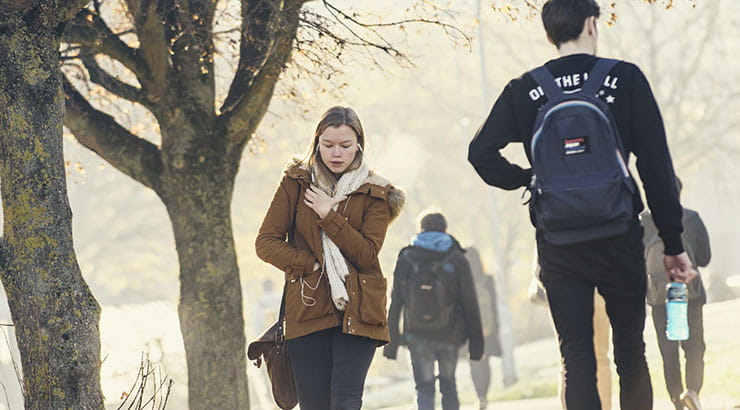Sexual health
Get information on sexual health.
Sexual health is more than protecting yourself from pregnancy and sexually transmitted diseases – it’s about being informed, confident and in control, respected and respectful.
Understanding sexual health
16- to 25-year-olds have the highest diagnosis rates of sexually transmitted infection (STIs) of any age group. Protecting your own and your partner's sexual health is key to having enjoyable and healthy sex, whatever your relationship situation.
Contraception
There are many different types of contraception available and you may need to try a few to find what works best for you. Barrier protection such as condoms prevents STIs as well but not all contraception does.
Find out about the different types of contraception available.
Sexually transmitted infection (STI)
It is possible to have an STI but have no obvious symptoms so it’s a good idea to always get tested in-between sexual partners. Use barrier protection with new partners at least until you have both got tested, are exclusively seeing each other and are using an alternative form of contraception. Find out more about preventing STIs.
If you think you have an STI, don't panic. Go to your doctors' surgery, the University Health Centre or local sexual health clinic and get tested, and treated if required. Left untreated, STIs impact on your overall health and sometimes affect your fertility long term.
You can find out more about symptoms and types of STIs on the NHS website.
Get support and advice on sexual health
If you have any concerns about sexual health or are having relationship problems, plenty of help and support is available:
- Access health services
- Wellbeing support options
- The Students' Union at UWE Advice Centre
- NHS sexual health services in Bristol;
- British Pregnancy Advice Service (BPAS)
- LoveRespect – Women’s Aid’s website for young women
- Men’s Advice Line for if you are a man and possibly experiencing abuse in a relationship
Support for victims of sexual violence and abuse
Report and support
Our online report and support tool has been developed for UWE Bristol students. If you've experienced, seen or heard something that doesn't feel right, #Speak Up.
You can choose to speak with one of our trained advisers so they can discretely investigate incidents, or you can report issues anonymously without action being taken. Get support if you or someone you know is experiencing sexual harrassment, sexual misconduct or domestic abuse. Reports of abuse of any kind are taken extremely seriously and investigated under the Student conduct policy (PDF).
Consent
Consent is mutual and a free choice. If you're not sure about a situation, ask. It’s your right to have control over your body, to express what you want; when; with whom and how, to change your mind and stop at any time. It’s your responsibility to respect the same rights of others.
Consent training
You can access free training on consent from Somerset and Avon Rape and Sexual Abuse Support (SARSAS).
Unwanted touching and groping
Everyone has the right to not be touched by another when they haven't consented. Unwanted sexual touching and groping is a crime.
You may also be interested in

Access health services
Find out how to access local and campus health services.

Wellbeing Service
Our wellbeing practitioners are here to support your mental health and personal development needs.

Wellbeing self help
We have a range of resources at UWE Bristol to help you manage your own wellbeing.
